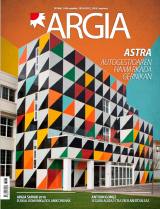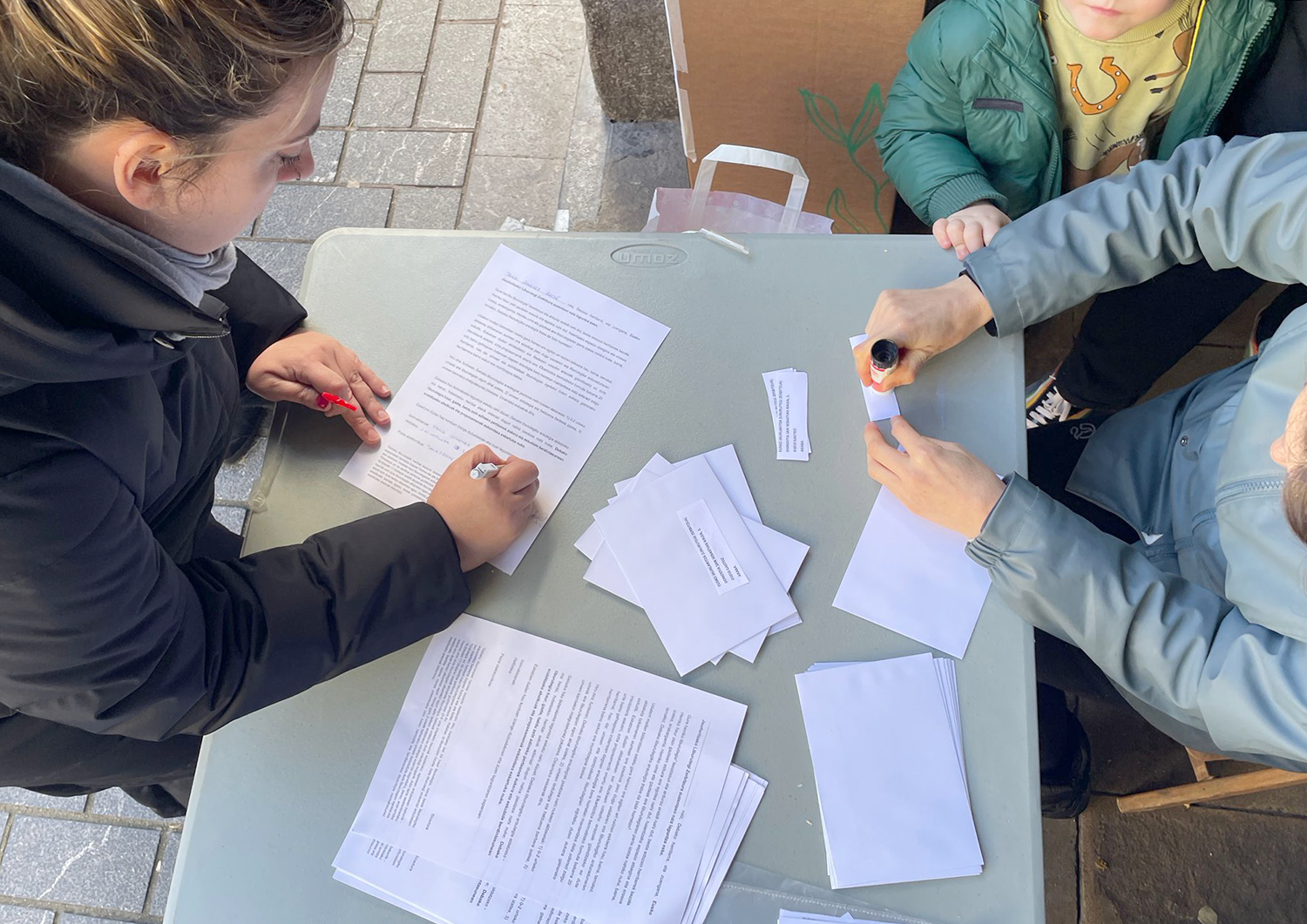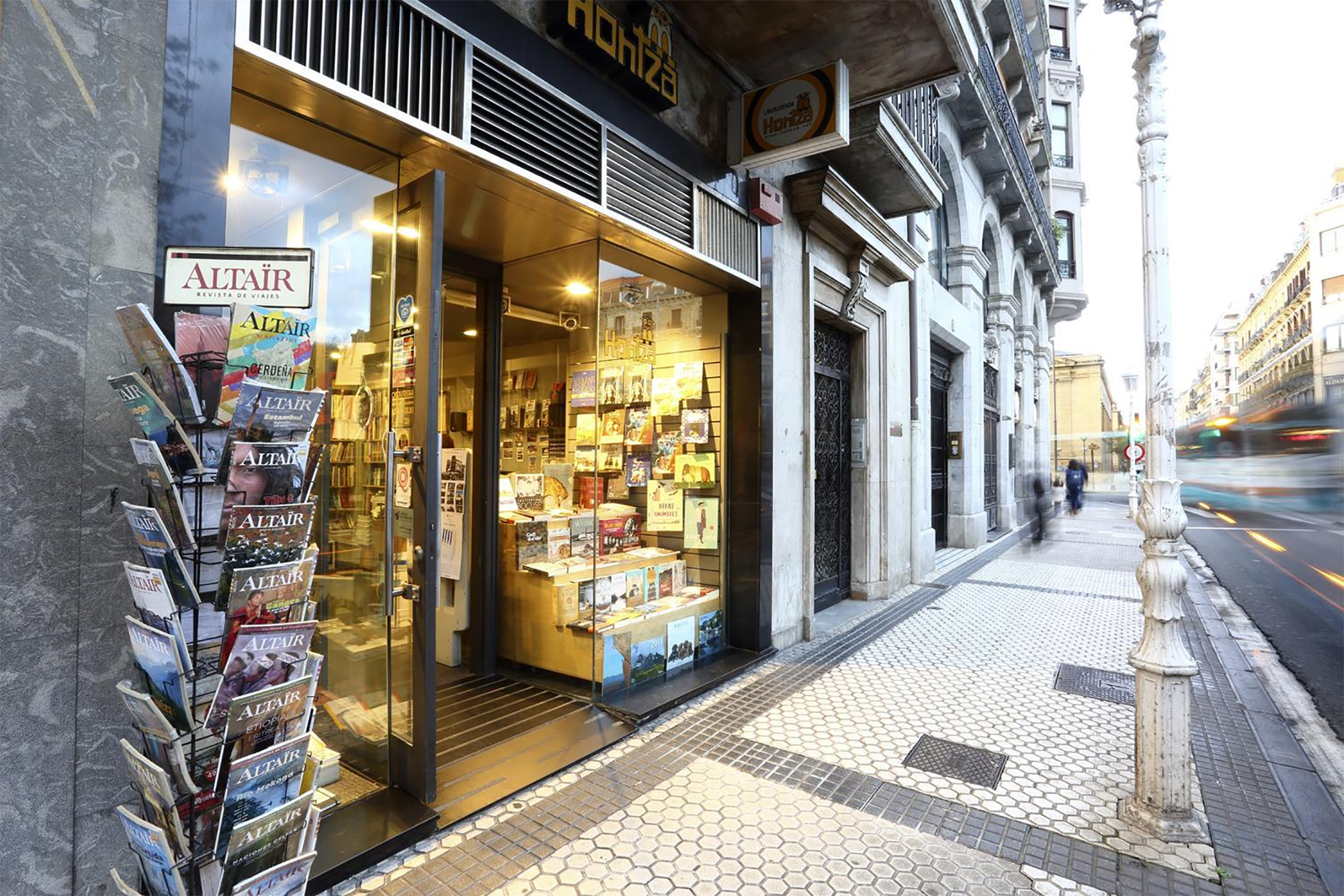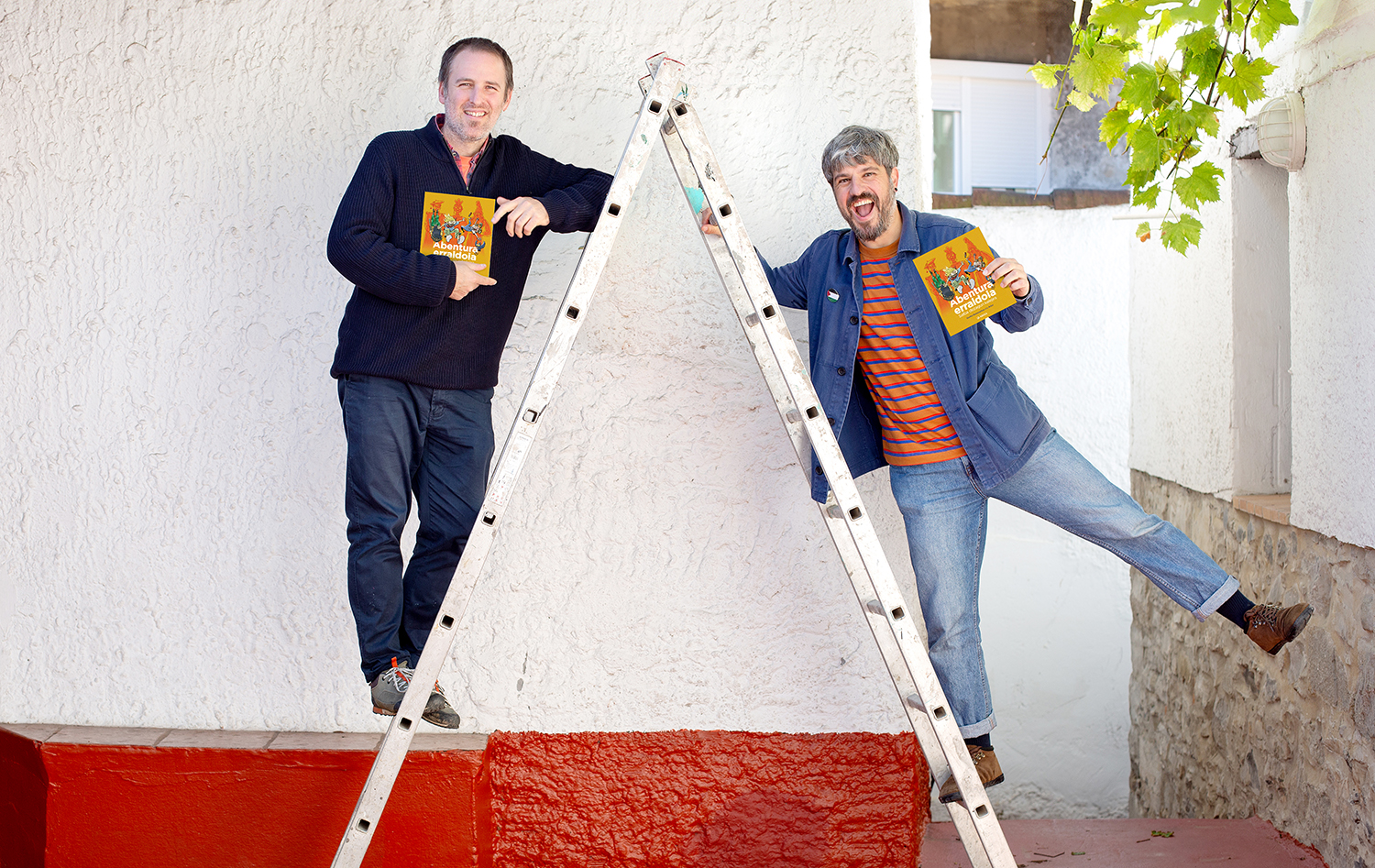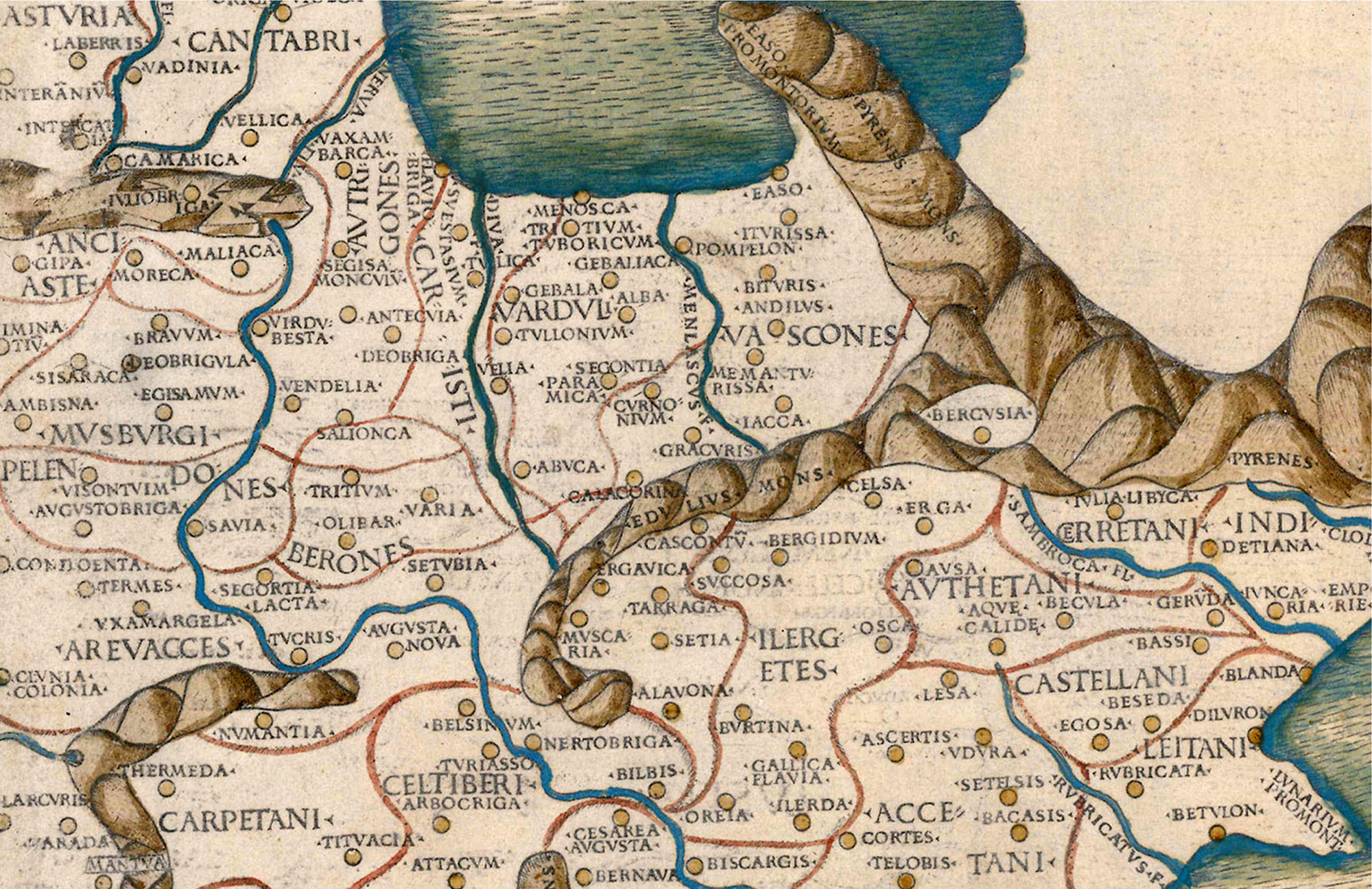"If I make people feel a little bit of respect for immigrants, I'm glad."
- Beyond mere entertainment, Jon Arretxe’s black novels also have a social message. Touré, his character, is the reflection of the Africans we see on the street. Arretxe, besides a writer, is a traveller, an opera singer, a musician and an athlete.
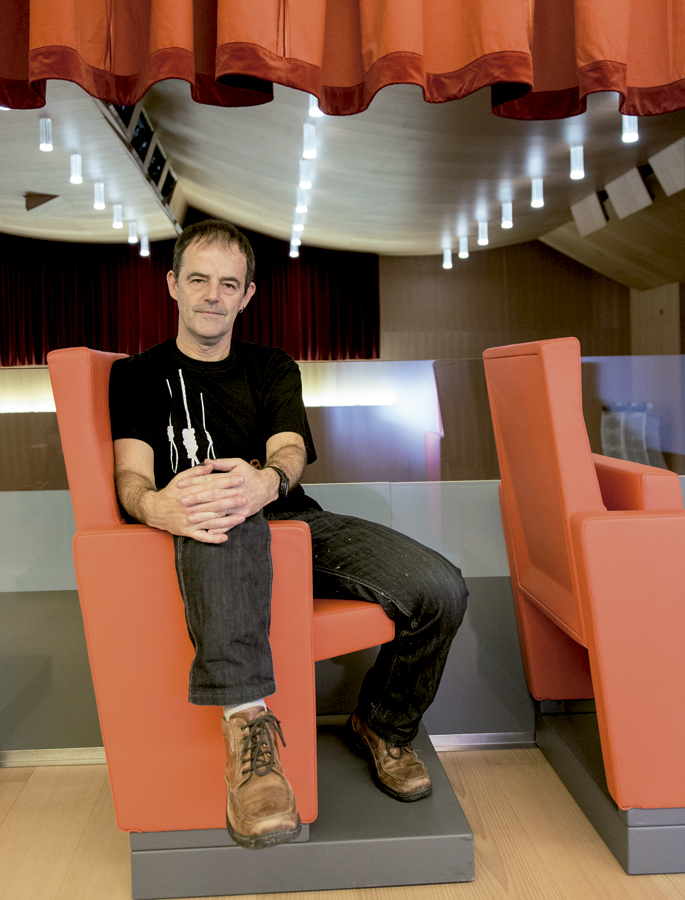
You're a well-known writer, but you're also a musician. How did you start doing it?
When I was a kid, my mother forced me. He was always very fond of music and had a very good ear, but he couldn't learn because his family was not rich. I was clear that I would teach music to her children, and I was forced at six years old to go to schools. First the solffa, then the accordion, the piano… Always at disgust. Now I am infinitely grateful to my mother. Thanks to the easy reading of music, for example, I can now sing.
Also, you're an opera singer.
I started singing as a young man and more adults I continued studying in Vitoria and in Bilbao. At the same time, in Bilbao, I sang at the Bilbaina Association of Friends of the Opera OLBE, but when I came to live in Navarre I left it because I was lazy to go there. In Pamplona I found the AGAO opera group, and in recent years I've been here. Plus, they give me soloist papers, and besides being really motivating, it gives me a little bit of money. This last year we have made Don Pasquale. I play the role of notary and I am the protagonist of the version we have prepared for the children.
What role would you like to play?
I have sung the arias of Osmin de El rapto in the serrallo, but I would do all the opera very well, or the character of Simpson in La Tabernera del Puerto zarzuela.
What would it take to democratize opera hobby?
Now is not the best time for art in general, for lack of money. Opera is a very expensive thing. The entrances are also expensive because they're an awesome montage. There are a lot of people working. However, some things can be done, for example, works adapted to a lower price. The AGAO does so in many countries and it works very well.
On the other hand, music has always been a lesson in schools and we don't take it very seriously. We consider it complementary, but very important.
Why?
Because you work a lot of things: feelings, ability to thrill -- having a good music teacher can open a lot of doors to a person.
He studied philology in Deusto. By vocation?
It's almost embarrassing, but I also did it because of my mother. As a child, it seems that he was very fast and always spent a year ahead until I finished the race. I started in college 17 years ago and I didn't care what I learned, because I didn't have that clear idea. My mother then realized that at the University of Deusto there was a career in Basque Philology, and she proposed to me to do so because I was very Basque. So I walked in, by chance.
You made the thesis about the Basque in Basauri. What exactly did you analyze?
Although the grandparents were from Basauri and the Euskaldunzaharras, their parents lost the Basque. Pérez was from a family of foreign origin, but was born in Basauri and learned Basque. He was also an old Basque. The post-war era was the hardest. Basauri is on the edge of the Basque Country. It was very hard to be Euskaldun, and after the war many people stopped talking in Euskera. That's what I researched in my thesis. Those who knew were those who were born before the war, those who had learned at home.
How did you learn?
In our house, my brother and I have recovered the Basque. For my part, self-taught. In our family some were still Basques. A brother of his father, for example, married a woman who came from a Basque people and recovered the Basque. I worked with family members and the Basques who lived at my door. In addition, in our center there was a Euskera subject. She was a co-operative of parents and they decided that, at least, we had to teach Euskera as a subject. So I learned on my own, and then I went to the Basque Country to take the title, title D, which is now EGA.
Is there still an old Basque in Basauri?
I was asking from house to house, from house to house, and I saw that in some families it has remained “sugetian”, as they say, in the kitchen. What happens is that the kids of today don't speak Biscayan, but they do the batua or the mixture. Basauri's Basque is gone.
Is it worth you?
A little bit yes. The diversity of the dialects has always seemed very nice to me, but it is nothing practical. We need union and there is no other solution. That's right, people have gotten into the head that they almost just joined the Gipuzkoan, and that's not the case. The lexicon is all batua. Writers, journalists, teachers -- before we lose, we have to use that lexicon for people to learn. It's in our hands.
He then studied Physical Education.
Yeah, that's what I learned on purpose. I started teaching Euskera in Deusto while I was in the career, and at 21, when Philology was finished, I continued to work. It seemed like my life was already focused, and then I thought it was too early to end my student life. Plus, I wanted to travel. So I quit the job and I almost killed my parents. They had gone through hunger, especially my father, and they couldn't understand how I could leave a solid and satisfying job for my travels.
After four years I learned that in Vitoria there was a career in physical education and then, at 25, I went to study again. At the end, a few places left to teach Physical Education in college and I worked on it for three years, until I got tired. I was drowning with all the mafia that was inside college. There were a lot of people of flesh and blood, a lot of ambitions, and besides, I couldn't travel when I wanted to. So I quit the job and I went back to exalt my parents to see if I was crazy.
I started writing and, seeing my books were selling more and more, I thought I could live just by writing. I bet and I'm happy.
A bike enthusiast and a professor of physical education, a sports enthusiast without a doubt.
Yes. I've been doing and competing for the triathlon for almost 25 years. That's why bike rides weren't too hard for me. He was well trained.
Traveling, your passion?
So until recently. It was also by chance, like most things in my life. Destiny has always decided for me. When I was 18, I lived with my parents, and with the money I earned, I started making trips. For ten years, I made short trips, and then for another ten years, I took long journeys with the goal of writing books. It was two- or three-month departures, just me, and with the bicycle. It was a necessity for me. He lived very well in the Basque Country and that was not a need to escape, as many travellers do. It wasn't my case.
Are we very different from others?
No. In general, we Basques are European. We have similar goals and values. I've been in what we call the third world the most. Then the priority is to live the moment and survive. I've tried to apply that same thing in my life, enjoying the moment and after. Her father started working in a 14-year-old company and spent 50 years in the same company. At the time of his retirement, he was hit by a cancer that caused his death. It was clear that I didn't want the same thing to happen to me. In travel you learn that: enjoy life and live the moment without thinking too much about the future.
And what have you learned from others?
I've become a little African in some things. Hospitality, for example. I really like people coming home. In Africa, they never let you go there. They always open the doors of your house and do not take anything out of you, as some believe. One thing is what happens in tourist sites and another very different in the rest. Simple people are very welcoming and supportive.
And now?
Now I have a family, my wife and my 9-year-old son, and they have to be consistent. In recent years, I've chosen a place as an inspiration for writing, and I'm going to spend a few days. My family is a tremendous bargain. I can't complain.
The four books in the Toure saga have been placed in the San Francisco neighborhood of Bilbao that you call the city’s litter or the landfill of human beings. Why?
Because there is nothing like that throughout the Basque Country. This neighborhood is a small Africa. You're like abroad. A black novel can be located anywhere, but in mine the social issue, exclusion and life of immigrant people are very important elements.
I've been working as a hurricane for four years on San Francisco Street number 43. On the second floor, I wrote on the right "19 cameras," and when they rented that floor, I went to the second left. I have a lot of friends in the neighborhood, in SOS Racism and in an AIDS group. They're awesome sources of documentation. There are ex-camels, ex-prostitutes, ex-jaciques that help people. With what I see on the street, I have the novels to half write. However, I make some escapes. Recently I was in Ethiopia and I have to put the next book abroad so I can get out.
How do immigrants live here?
So far they have had a very hard life, but until the beginning of the crisis they always got something out of social aid or small jobs. They didn't carry much pressure because we were all pretty good. Now, on the other hand, it's different, and in addition, jihadism has been for them a whore of the greatest. Most of them are sick.
How do they see us?
They say that the Basques are not so bad. That in other places, they're more godly. I believe that here in general there is more solidarity, many social movements and many associations. Maybe a little bit more respect, but just a little bit. The current situation is not good.
We have just taken the fourth volume out of the Estolda jolasean saga, the fifth comes on its way?
Yes. My Toure is a mixture of many immigrants. I am very pleased with this character, the reception he has had, the feedback there is with the readers… People appreciate Touré and I too.
Many have told me that every time you cross a black man on the street, you look at him differently. That makes me an illusion. If I make people think about immigrants and make them feel a little bit of respect, I'm glad.
He has also written for young readers.
Very little, what happens is that there are books that seem right for young people, and I've been lucky, some of them have gotten into educational circuits. Thursdays, Fridays and Saturdays are a trilogy so famous that it is not juvenile literature, because from an educational point of view they are not exemplary, but I don't know why, they love it. For me very well, because the more I sell, the more I win. Now I'm very happy because Toure's books have also begun to enter that circuit, and it's very important for me that teenagers know that reality. Working on this reality in all towns and schools is a very good thing.
What does the writer's day to day look like?
I don't have the same two days and that's a very beautiful thing. It's a real delight. I don't have a routine. I think the routine shuts down the craving to do things. When I write, I like to spend the whole day, so I leave here to go home. I'm a writer in 24 hours, even sleeping. I go out and take some boats with my friends and I gather ideas from people. On the other hand, you must move to make your books known. Sometimes it's tired, but I'm very comfortable. I am now working in Spain. Before I only wrote in Euskera, now everything goes back to Spanish and, for example, I will talk about my work in Madrid, Cuenca, Gijón or Getafe.
Arbizun, Sakanan, bizi da. 24 libururen egilea. Haietako askotan bizikletaz egindako bidaietan ikusitakoak bildu ditu (Sahara, Amazonas, Karakorum, India, Txina, Nepal, Sumatra, Turkia…), nobela beltza eta bidaia literatura uztartuz. Azken urteotan etorkinen bizimodua erakutsi digu Toure pertsonaiaren bidez. Kirolzalea, piano-jotzailea eta opera kantaria ere bada. AGAO (Asociación Gayarre de Amigos de la Ópera) elkarteak antolatutako opera eta zarzueletan abesten du.
“Arbizura kasualitatez iritsi nintzen. Han etxe berri bat prezio onean aurkitu genuen, lur zatitxo batekin. Zoriontsua naiz nire ortutxoarekin letxugak eta tomateak zaintzen”.
“Eleberri beltzaren ezaugarri bat izan da azpian dagoen mundua erakustea eta salatzea. Hori ez da galdu behar”.
Opera kantaria da Jon Arretxe. Baxu ahots sakon eta ederra du, kontrastea egiten duena bere izaera jostalari eta askearekin. Bizikletaz heldu da elkarrizketara. Iruñeko Baluarten egin dugu, berak hainbeste aldiz abestu duen tokian. Soinean ekarri duen kamiseta ere oso egokia: Cuencako “Las casas ahorcadas” izeneko eleberri beltzaren inguruko jardunaldietakoa. Han izana da eta joatekoa berriro, bere lanen promozioa egitera. Idatzi bezala hitz egiten du: zehatz, argi, bizi, erraz eta erakargarri.
Party and recreation. Oral History of Rock Radical Vasco
Javier 'Jerry' Corral
Books, 2025
------------------------------------------------
Javier Corral ‘Jerry’ was a student of the first Journalism Promotion of the UPV, along with many other well-known names who have... [+]









